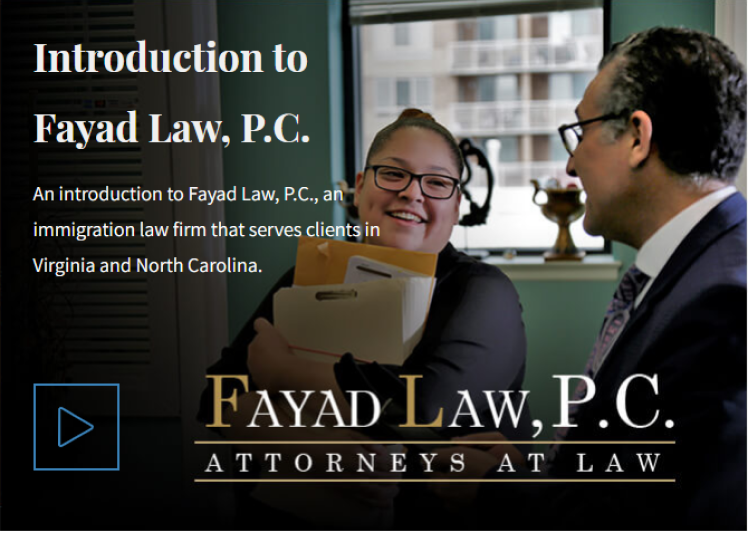Asilados o refugiados por Inmigración
Cada año millones de personas vienen a los Estados Unidos buscando protección porque los están persiguiendo en su país de origen ya sea por asuntos religiosos, políticos, raciales, o porque pertenecen a grupos o pandillas. Aquellas personas que hayan comprobado que realmente han sido perseguidos y tienen fundamento para tener miedo de regresar a sus países de origen son elegibles para aplicar por asilo y permanecer en los Estados Unidos. (Párrafo tomado textualmente de los Servicios de Inmigración y Ciudadanía de los Estados Unidos sus siglas en Ingles son USCIS).
La Ley de los Refugiados del año 1980 y sus subsecuentes modificaciones fueron incorporadas a la Ley de Inmigración y Naturalización la cual dice que, “cualquier extranjero que haya estado físicamente presente in los Estados Unidos o que haya llegado a los Estados Unidos…indiferentemente en que condición el extrajera haya entrado al país, puede aplicar por asilo…” (Véase el artículo 208 de la Ley de Inmigración y Naturalización).
Generalmente el proceso toma unos 60 días desde el día que se llena la aplicación. En algunos casos se toma más tiempo, por ejemplo si usted tiene un estatus legal y fue entrevistado en una oficina de Distrito o si su caso está siendo revisado por la Oficina Principal de la División de Asilo. En estos casos usualmente la decisión o el fallo son enviadas a usted por correo.
Bajo la categoría de refugiado o asilado usted debe aplicar por la residencia legal en los Estados Unidos un año después que le hayan aprobado su caso de asilo o de refugiado. Si usted es un refugiado la Ley le requiere que aplique por su residencia permanente. Esta condición no es obligatoria por la ley si usted es asilado; de todos modos es lo aconsejable.
Si eres un Refugiado
- Que usted haya estado físicamente presente en los estados Unidos por lo menos durante un añodespués de haber sido admitido como refugiado
- Usted es el/la esposo (a) o hijo (a) de un refugiado
- Usted no ha abandonado su estatus de refugiado
- Su admisión como Refugiado no ha sido terminada
Si eres un asilado
- Que usted hayas estado físicamentepresente en los Estados Unidos por lo menos durante un año después de haber sido aprobado el asilo
- Usted debe continuar manteniendo los requerimientos de la definición de asilado
- Usted no ha abandonado su estatus de asilado
- Usted no está viviendo en otro país extranjero definitivamente
Procedimiento para aplicar por Residencia Permanente como asilado o refugiado en Inmigración:
Una vez que usted haya cumplido con los requerimientos básicos mencionados arriba, usted debe aplicar por la Residencia Permanente o Ajustar su Estatus. Antes de aplicar por la Residencia Permanente o Ajustar su Estatus, usted debe haber vivido por lo menos un año en los Estados Unidos como asilado/ Refugiado o familia de Refugiado.
Todos los documentos que estén en otro lenguaje que no sea en inglés y que se vaya a introducir en Inmigración deben ser traducidos. La persona que traduzca el documento debe certificar que ella/él es competente para realizar la traducción y que la traducción es fiel o exacta a la del documento original.
Permiso para trabajar en los Estados Unidos:
Usted no debe aplicar por el permiso de trabajo en los Estados Unidos al mismo tiempo que esta aplicado por el asilo.
Usted debe aplicar por el permiso de trabajo si:
- 150 días han pasado desde que usted introdujo a Inmigración su aplicación de asilo, excluyendo las causas que por usted puedan causar un retardo ( por ejemplo que usted pida que le den otra cita para la entrevista)
- Ninguna decisión se haya tomado con respecto a su aplicación. Si a usted le aprueban el asilo usted debe y puede trabajar inmediatamente. Algunas personas prefieren recibir el permiso de trabajo para su conveniencia o para que le sirva de identificación, pero esto no es necesario para trabajar si usted es asilado.
Para aplicar por el permiso de trabajo o tarjeta conocida en Ingles como EAD, usted debe introducir a Inmigración la Planilla I-765, Aplicación para Permiso de Trabajo.
Introduction To Fayad Law, P.C.

Have questions about your rights? Ready to discuss your
immigration case? Contact Fayad Law, P.C. now.
What Sets Fayad Law, P.C. Apart?

Firsthand Experience
as Immigrants

English, Arabic, French,
Russian, Spanish, and Farsi

Proven Track
Record of Success

Personal, One-on-One
Attention

You Stay Informed
at All Times

We Strive for Client
Satisfaction
FAQs - FREQUENTLY ASKED QUESTIONS
There are dozens of different types of visas available under the provisions of the Immigration and Nationality Act (INA), but they can all be placed in one of two categories: immigrant and nonimmigrant visas. The former is for individuals who are hoping to establish permanent residency with a green card and perhaps even to pursue the path to naturalization and citizenship. The latter is for those who are only planning a temporary visit to the United States, such as for the purpose of conducting business or attending school.
The INA sets limits on the number of people who will be permitted to immigrate to the United States each year using certain types of visas, while other visas are unlimited. Family immigration visas for the immediate relatives of U.S. citizens are available on an unlimited basis, while there are annual quotas set for the relatives of lawful permanent residents and extended family of citizens, with a maximum quota of 480,000. The number of employment immigration visas is limited to 140,000 per year.
Pathways to citizenship include service in the United States military and adoption, but a large percentage of all people who become citizens do so through the process of naturalization. The basic qualifications for naturalization include:
- Living in the U.S. as a permanent resident for 5 years (or 3 years for a spouse of a U.S. citizen)
- Being at least 18 years of age
- Living within the state where you will apply for citizenship for at least 3 months prior to the application date
- Being physically present in this country for at least half of the past 5 years
- Maintaining continuous residence in this country from the date you submit your application for naturalization
- Being able to read, write and speak English
- Have a basic understanding of U.S. government and civics
It is also necessary to supply evidence that you are a person of good moral character and are attached to the principles of the U.S. Constitution. We can assist you with proving these factors, as well as preparing your petition and helping you get ready for the tests.
In June of 2012, the Obama Administration directed the Department of Homeland Security (DHS) to begin applying a policy that is referred to as Deferred Action for Childhood Arrivals (DACA). Under deferred action, DHS is exercising discretion in its execution of the laws concerning deportation and removal of immigrants who are illegally present in the United States. Deferred action is not a change to the existing law, but is instead a change in the way that the law is being applied. You may qualify for relief under DACA if you were younger than 31 years of age on June 15, 2012, came to the U.S. before your 16th birthday, have continuously resided in this country since June 15, 2007 and are either currently in school or have already graduated from high school or earned your general education development (GED) certificate, among other criteria. With deferred action, you may be able to avoid being deported, though it does not grant any change of immigration status.
In its review of immigrant visa petitions, the U.S. Citizenship & Immigration Services (USCIS) weighs factors related to the ties that the prospective immigrant has in the United States and the reasons why he or she wants or needs to come to live in this country. For example, a family immigration petition will not be approved unless the foreign national has immediate relatives such as a spouse, mother or father, child or sibling already living here as a citizen or green card holder. An employment immigration petition is more likely to receive approval if the applicant has a job offer in this country and is coming to fill a position that cannot reasonably be filled from the local labor market. A foreign national who is fleeing persecution in his or her home country may be granted an immigrant visa as a refugee or asylee.
There are many strategies for challenging a removal action. If the proposed deportation is based on a criminal conviction, it may be possible to appeal the conviction in order to have it overturned. Another option is to petition for cancellation of removal, a type of immigration relief which is available to people who are of good moral character and whose deportation would subject a family member who is a citizen or permanent resident to extreme hardship. The key to success in stopping deportation is to take immediate action by hiring a Virginia immigration attorney from our firm as soon as possible. Contact us now at Fayad Law, P.C. for a confidential consultation and to let us get started on your case!
Fayad Law, P.C. maintains offices in Richmond and Fairfax, Virginia. We work with individuals, families, and businesses across the world, providing them with assistance in resolving the legal issues involved with helping their loved ones and employees to immigrate to the United States. We work directly with foreign nationals living abroad, guiding them through the process of obtaining immigrant and nonimmigrant visas for entry to the U.S.
Real Clients, Real Testimonials
Contact Us Today
Have questions about your rights? Ready to discuss your immigration case? Contact Fayad Law, P.C. now.



















